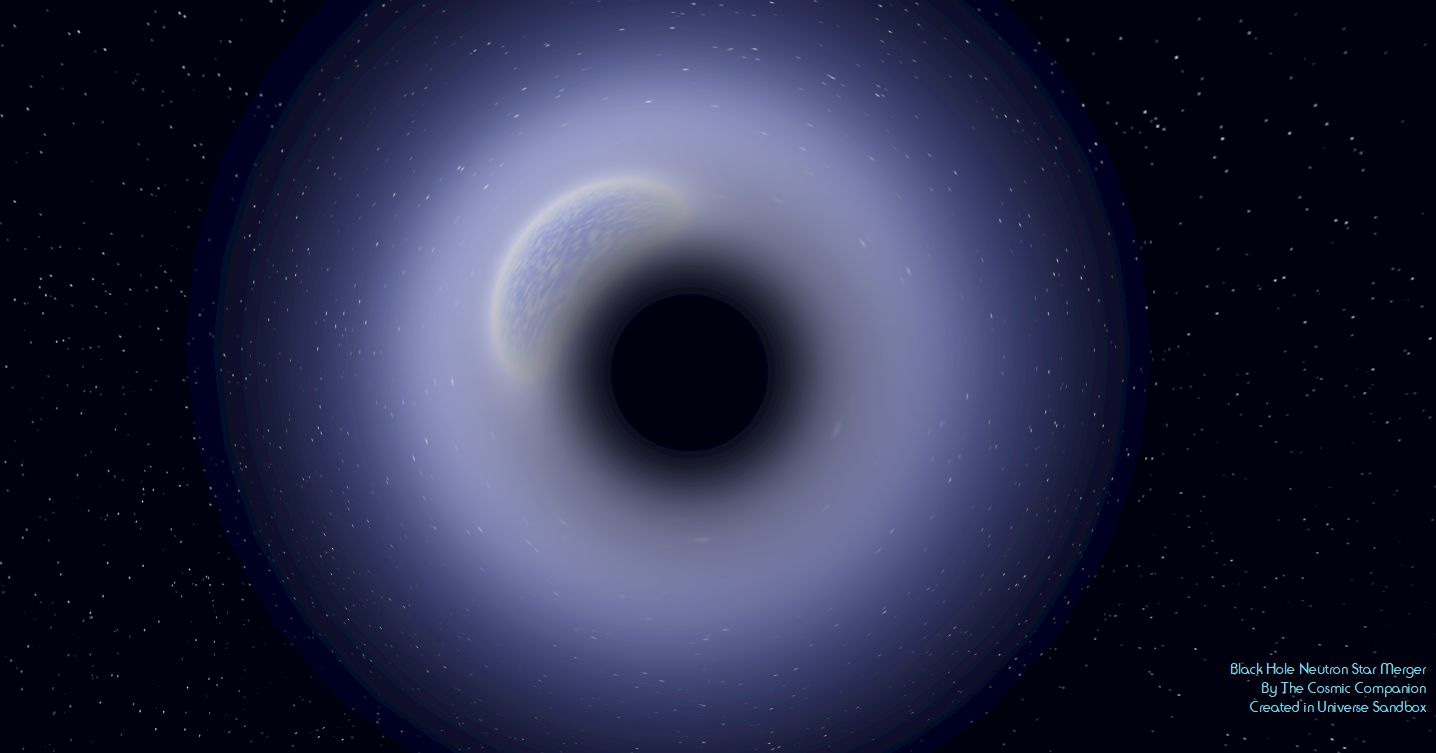Seeing Black Holes Eat Neutron Stars - The Cosmic Companion June 30, 2021
A pair of massive collisions long ago created ripples in spacetime detected by gravitational wave detectors. So why can't it be seen in light?
Black holes eat neutron stars, forming gravitational waves holding secrets of their collisions.

For a billion years, gravitational ripples in spacetime sailed through the Cosmos. Patterns in these elusive waves held the story of a pair of mammoth collisions that occurred at a time when multicellular organisms first evolved on Earth.
Neutron stars are the densest bodies that can still be classified as stars — a single thimbleful of material from one of these bodies would weigh more than Mount Everest. And black holes are recognized as the densest points of space known to science.
Neutron star binary systems have been known for decades, discovered from observations carried out within the electromagnetic spectrum. The first black hole binary system was seen in 2015, examining ripples in gravitational waves. However, these new findings came from the first (and second) neutron star/black hole (NSBH) systems ever detected.
Read more: https://thecosmiccompanion.net/seeing-black-holes-eat-neutron-stars
Upcoming guests on Astronomy News with The Cosmic Companion
Check out our list of amazing upcoming guests!
July 6 (s5/e1): SEASON FIVE PREMERE! New York Times bestselling author Earl Swift, author of Across the Airless Wilds, the first major history of NASA’s lunar buggy.
July 13 (s5/e2): Dr. Stella Kafka, CEO of The American Association of Variable Star Observers, returns to the show, talking about Betelgeuse.
July 20 (s5/e3): Geoff Notkin, host of Meteorite Men on the Science Channel and president of the National Space Society, talks meteorites.
July 27 (s5/e4): CHIME member Kaitlyn Shin, MIT grad student, explains fast radio bursts (FRBs)
August 3 (s5/e5): Teaching science to children with Dr. Stephanie Ryan, author of Let’s Learn Chemistry.
Remember - VIP members see every episode of this show a day early! Plans start at just $5 a month - subscribe today!
For more details on space and astronomy news, please visit: thecosmiccompanion.net or thecosmiccompanion.com.
Watch every episode of Astronomy News with The Cosmic Companion at: thecosmiccompanion.tv.
Thanks for reading, donating, and sharing!
- James


